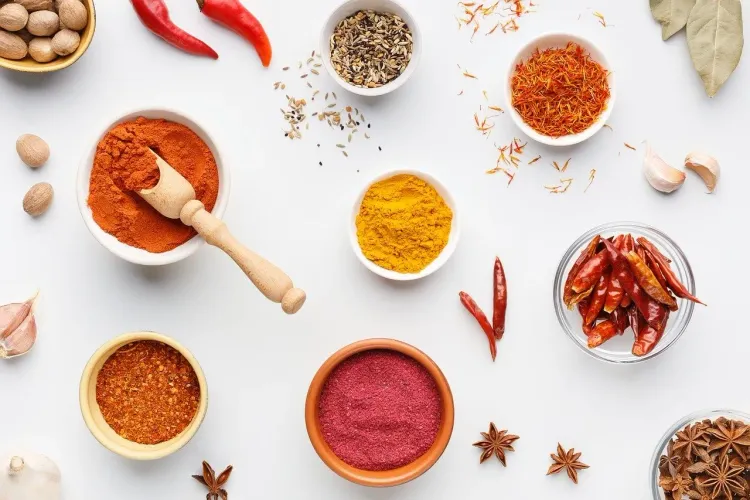Will India’s Exports of Spices, Tea, and Cashew Flourish as Trump Reduces Tariffs?

Synopsis
Key Takeaways
- Tariff reductions on food imports can significantly boost Indian exports.
- Indian spices, tea, and cashew nuts are major beneficiaries.
- Political pressure due to rising prices influenced this decision.
- Approximately 50 processed food categories stand to gain from these changes.
- This move could enhance trade relations between the US and India.
New Delhi, Nov 16 (NationPress) The Indian export market is poised for a significant boost as President Donald Trump has announced a substantial reduction in tariffs on nearly 200 food items, including spices, tea, and cashew nuts, aimed at making these products more accessible to American consumers amidst rising prices that sparked political criticism.
Included in this revised list are various Indian food exports, such as black pepper, cloves, cumin, cardamom, turmeric, ginger, diverse tea varieties, mango derivatives, and cashew nuts.
In 2024, India's spice exports to the US were valued at over $500 million, while tea and coffee exports reached approximately $83 million. Furthermore, the US imported around $200 million worth of cashew nuts from India.
Officials from India stated that nearly 50 categories of processed foods, with export values estimated at $491 million last year, are expected to benefit the most. This encompasses coffee and tea extracts, cocoa-based items, fruit juices, pulp products, mango preparations, and vegetable waxes.
Spices alone, valued at $359 million, are anticipated to be among the top beneficiaries. An additional 48 varieties of fruits and nuts, including coconuts, guavas, mangoes, cashew nuts, bananas, areca nuts, and pineapples, will also gain from these changes, although they accounted for only about $55 million in total exports. Collectively, this revised tariff list affects nearly one-fifth of India's agricultural exports, which total $5.7 billion.
President Trump has signed an executive order permitting the import of a range of food products as his administration confronts increasing pressure related to rising living costs. Although Trump previously downplayed concerns regarding inflation, he has been compelled to respond following electoral losses for his Republican Party in Virginia and New Jersey last week.
The Trump administration claims that the food products listed cannot be produced in adequate quantities domestically. The retroactive tariff exemptions for these food items took effect at midnight on Thursday, November 13, according to the White House.









